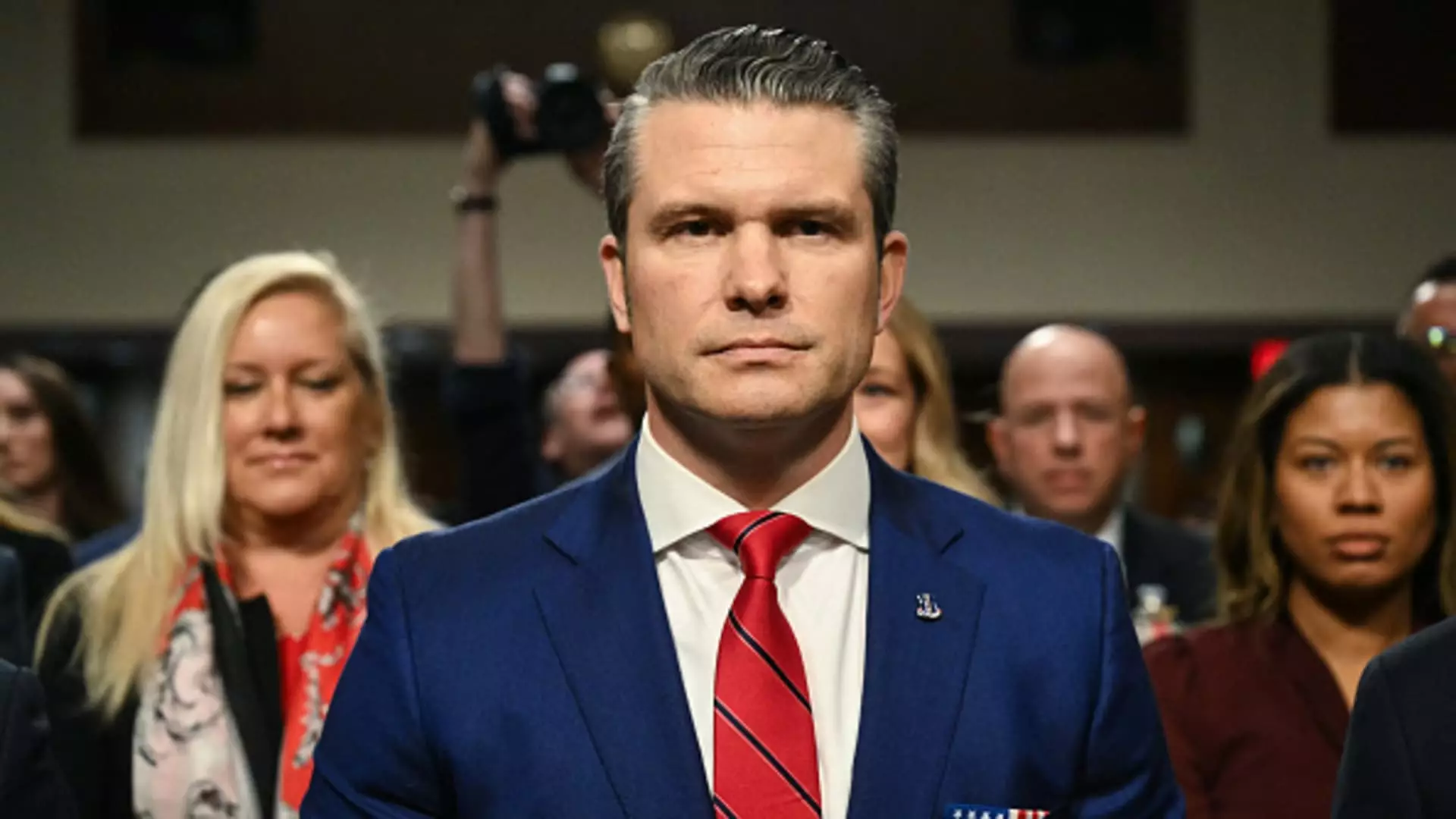In the realm of American politics, few appointments come without controversy, especially when it involves a critical role such as the Secretary of Defense. The nomination of Pete Hegseth, a former Fox News personality and veteran, has exposed deep divisions not just within the Senate, but also among the Republican Party itself. With allegations of inappropriate conduct and questions about his views on military inclusivity swirling around him, the Senate’s struggle for confirmation speaks volumes about the current state of political dynamics in the United States.
As the confirmation vote for Hegseth loomed, the Republican-led Senate was resolute in its determination to push through his nomination. Senate Majority Leader John Thune underscored the necessity of Hegseth’s appointment by emphasizing his military experience and commitment to establishing what he termed a “warrior culture” at the Pentagon. Thune’s rhetoric articulated a clear opposition to what he described as the “woke distractions” affecting military operations, hinting at a broader Republican narrative that seeks to dismantle diversity and inclusion initiatives in the armed forces.
This strong backing from party leadership demonstrates the GOP’s attempt to consolidate power and convey a united front amid a landscape characterized by cultural strife. The stakes are high for both Hegseth and the Trump administration, as the outcome of this confirmation could serve as an indicator of Trump’s enduring influence over his party and the extent to which cultural conflicts resonate with the electorate.
Despite the vocal support from his party, Hegseth’s appointment is not without its detractors. His history of allegations, including a reported incident of sexual assault and claims of abusive behavior toward his former spouse, has raised significant concerns among several senators. These troubling accusations serve not only as a reflection of Hegseth’s character but also highlight a deeper issue within the military and its leadership. Senators like Lisa Murkowski and Susan Collins, who have publicly expressed their opposition, argue that confirming Hegseth would send a damaging message to women serving in the military.
Critically, these allegations expose a tension between traditional military values and the evolving understanding of behavior in public service, particularly regarding how allegations of misconduct are addressed. As the Senate deliberates, it opens the floor for discussion on what constitutes acceptable conduct for leaders in the military—particularly during a time when social accountability has become a central concern in various sectors, including politics.
The unfolding drama surrounding Hegseth’s nomination reveals more than just individual ambitions; it showcases the strategic maneuvering stemming from Senate leadership. With a slight Republican majority, the Senate can only afford to lose one more objection, creating a dynamic where several senators are weighing their choices against the backdrop of traditional party loyalty versus the ethics of the nomination process.
Trump’s calculated displeasure with dissenting Republicans hints at internal fractures that could jeopardize the party’s cohesiveness. With potential votes of discontent from prominent senators, Trump’s ability to rally his party around Hegseth becomes even more consequential. The nomination process has escalated into a vital test of loyalty for the party, inevitably linking personal character assessments with party allegiance in an era marked by partisan warfare.
The ramifications of Hegseth’s confirmation—or lack thereof—extend beyond the Pentagon. With Trump’s nomination strategy deploying candidates whose credentials and conduct prompt fervent debates, a more significant question arises about the future of military leadership. Should the Senate endorse Hegseth despite the controversies, it could signal a paradigm shift in the qualities deemed acceptable for national defense leaders.
Moreover, the impending confirmation process reflects broader cultural battles intensifying within the American political landscape. With the potential appointment of other controversial figures in Trump’s cabinet, senators may grapple with the implications of how selection processes align with traditional values versus modern societal expectations. The mounting pressure from both sides of the aisle hints at the legislative branch’s struggle to balance political strategy with ethical stewardship.
The unfolding saga surrounding Pete Hegseth’s nomination as Secretary of Defense encapsulates critical issues defining contemporary American politics: party loyalty, ethical accountability, and gender inclusivity in military service. As the Senate prepares for a consequential vote, the implications of Hegseth’s confirmation may resonate far beyond the walls of the Pentagon, challenging lawmakers to consider what kind of leadership they are prepared to endorse. The events leading to this pivotal point signal an ongoing struggle between traditional values and a society evolving in its demands for conduct, accountability, and representation in national defense. The outcome remains uncertain, but the dialogue initiated through this nomination will undoubtedly shape future discussions around leadership and integrity in American governance.

